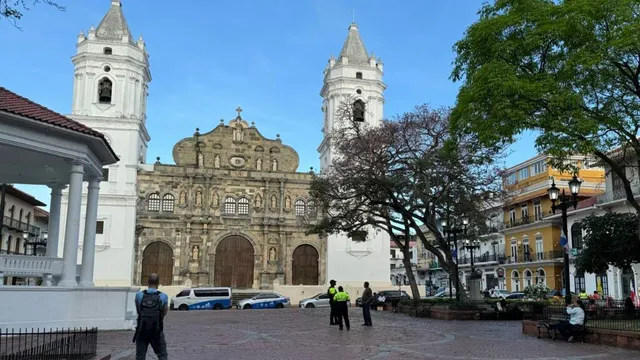
China challenges BlackRock's takeover of Panama Canal ports amid political tensions
2025-03-21 00:00- BlackRock plans to acquire two major ports on the Panama Canal from CK Hutchison in a $23 billion deal.
- Chinese and Hong Kong authorities are expressing significant concerns and investigating the potential implications of the transaction.
- The situation highlights growing tensions between the U.S. and China over control and influence in critical maritime trade routes.
Express your sentiment!
Insights
In early March 2025, BlackRock, an American investment firm, announced its intention to acquire two significant ports located on either side of the Panama Canal as part of a $23 billion deal with Hong Kong-based CK Hutchison. The proposed deal has garnered considerable attention due to ongoing tensions between the United States and China regarding control over this crucial maritime trade route. The Panama Canal is vital for global trade, with approximately 5% of maritime commerce passing through it, and thus, its control remains a matter of significant geopolitical interest. The arrangement drew immediate scrutiny from authorities in both China and Hong Kong, prompting investigations into the potential implications for antitrust matters and national security. Chinese President Xi Jinping expressed concerns that this transaction would diminish China's influence over shipping routes and disrupt its trade. This apprehension was echoed by Hong Kong Chief Executive John Lee, who emphasized that the deal deserved thorough attention owing to its potential ramifications for Hong Kong’s economic landscape. The U.S. administration under President Donald Trump welcomed the deal, asserting that it marked a vital step towards reclaiming control over the Panama Canal, which Trump has criticized China for managing in previous statements. He has argued that China was unfairly benefiting from operations at the canal, leading to a narrative that framed the acquisition of the ports by an American company as a reclaiming of American interests. As the deal progresses, speculation rises about the responses from both Beijing and Hong Kong leaders, especially given the significant economic and political stakes involved. There is also a growing sense of urgency, as leaks suggest that CK Hutchison's stock price suffered as a result of the uproar, indicating that investor confidence might be wavering amid the unfolding scrutiny. Within this context, many industry observers are keenly watching to see whether these governmental challenges will materially impact the deal's execution or lead to broader repercussions in U.S.-China relations.
Contexts
The Panama Canal, completed in 1914, is a crucial conduit for international maritime trade, linking the Atlantic and Pacific Oceans. Over the past century, it has significantly shaped global trade patterns, facilitating faster and more efficient shipping routes for vessels carrying goods between the two hemispheres. Control over the canal has shifted over time, impacting trade dynamics, national economies, and geopolitical relations. The U.S. controlled the canal until 1999 when it was handed over to the Panama Canal Authority, affecting how nations engage with this vital trade artery. The implications of this transfer have been profound, allowing Panama to exert greater influence over shipping processes, tolls, and trade policies within the region. The canal's strategic importance is underscored by its role in reducing travel distance for shipping companies. Before the canal's existence, vessels had to navigate around the southern tip of South America, a journey that could add weeks to shipping times and significantly increase costs. The canal shortens this journey drastically, allowing for quicker delivery of goods. As global trade has surged, the Panama Canal has seen expansions, including the enlargement project completed in 2016, which allowed for the passage of larger vessels known as New Panamax ships. This expansion has further intensified competition among shipping routes, leading to a shift in global distribution patterns. With over 14,000 vessels passing through the canal annually, the economic implications are substantial. The tolls generated by these ships provide significant revenue for Panama, contributing to the national budget and enabling investments in infrastructure and social programs. Additionally, control of the canal gives Panama a unique position in the global shipping industry, allowing it to forge strategic partnerships with other countries and attract investments in related sectors such as logistics and transportation. Countries reliant on the canal for exporting goods, especially those in the Americas and Asia, depend heavily on stable operations, making the canal a focal point of economic stability. Geopolitically, the Panama Canal remains a sensitive issue, with global powers keenly interested in maintaining favorable trade access. Control over trade routes has always been a point of contention, and the Panama Canal is no exception. As global trade continues to evolve with the rise of e-commerce and global supply chains, the canal's role will likely grow even more crucial. Countries are increasingly looking to secure trade routes that ensure economic competitiveness, and the Panama Canal, as a critical passage, is paramount to these strategies. The ongoing developments in global trade agreements and political dynamics around the control of the canal will continue to influence its impact on international trade well into the future.